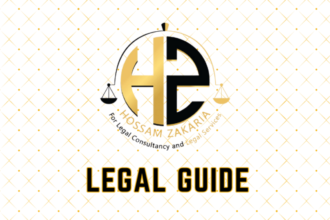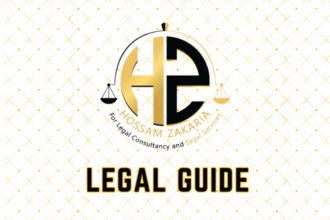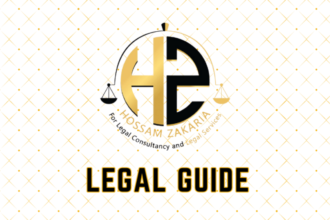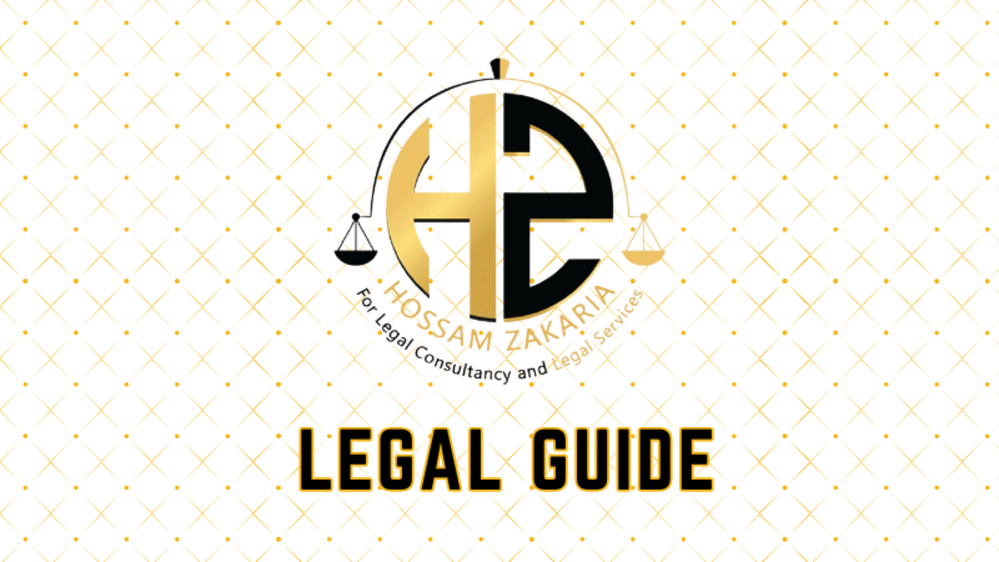Introduction: Arbitration as a Cornerstone of UAE Legal Practice
In today’s dynamic UAE business environment, arbitration agreements and clauses have taken centre stage in commercial contracts and dispute management strategies. With the UAE’s rapid economic development, cross-border investments, and its positioning as a leading global arbitration hub, understanding the legal framework governing arbitration has never been more critical. The landscape has evolved significantly, particularly with the Federal Law No. 6 of 2018 concerning Arbitration, and its subsequent regulatory clarifications and 2025 updates, marking a significant shift towards aligning UAE practice with international standards—most notably the UNCITRAL Model Law on International Commercial Arbitration.
This comprehensive guide provides legal practitioners, corporate decision-makers, and HR managers with an authoritative analysis of arbitration agreements and clauses under UAE law, integrating the latest legal developments, risks, and compliance strategies. It also offers practical recommendations for incorporating robust arbitration mechanisms into contracts, mitigating risks of non-compliance, and leveraging arbitration’s advantages in the UAE context. Whether navigating contract negotiations or resolving high-stakes disputes, this in-depth resource equips you with strategic insights to ensure your dealings remain compliant, efficient, and aligned with UAE’s progressive legal landscape.
Table of Contents
- Overview of UAE Arbitration Law
- Arbitration Clauses: Life Cycle in UAE Contracts
- Structuring Arbitration Agreements: Legal Requirements
- Comparison: Arbitration vs. Traditional Courts in the UAE
- Recent Updates: UAE Law 2025 and Regulatory Changes
- Key Provisions: Analysis and Practical Implications
- Enforceability and Challenges: Avoiding Pitfalls
- Case Studies and Practical Examples
- Risk Management and Compliance Strategies
- Best Practices for Drafting Arbitration Clauses
- Conclusion and Forward-Looking Perspectives
Overview of UAE Arbitration Law
Legal Foundations: Federal Law No. 6 of 2018 and Beyond
The cornerstone of arbitration in the UAE is Federal Law No. 6 of 2018 on Arbitration, which abrogated earlier provisions of the UAE Civil Procedure Code related to arbitration. This comprehensive statute provides a modernized framework consistent with international best practices. Key sources include:
- Federal Law No. 6 of 2018 (Official Gazette No. 630, published 15 May 2018)
- Ministerial Resolutions and Cabinet Decisions regulating arbitral institution licensing, enforcement processes, and procedural rules
- International treaties to which the UAE is a party, including the New York Convention (acceded in 2006)
Scope and Applicability
The 2018 Arbitration Law applies to domestic and international arbitration proceedings conducted within the UAE, as well as to disputes where parties have agreed to apply UAE law, irrespective of the actual arbitral seat. Specialized free zone regimes, such as the DIFC (Dubai International Financial Centre) and ADGM (Abu Dhabi Global Market), have their own arbitration laws but coexist with the federal framework.
Objectives and Policy Rationale
The purpose of these reforms is clear: to catalyse investment, promote commercial certainty, and position the UAE as a preferred venue for resolving disputes efficiently while upholding the principle of party autonomy. This flexibility empowers parties to agree on key arbitration terms—seat, language, rules, and arbitrator appointment—while guaranteeing enforceability within the UAE’s robust legal system.
Arbitration Clauses: Life Cycle in UAE Contracts
Initial Negotiation and Drafting
The inclusion of an arbitration clause at the contract formation stage is the most effective means of ensuring access to arbitration. The clause must be unequivocal, in writing, and explicitly reference the nature of disputes covered, the arbitral seat, and governing rules. Ambiguities may undermine its enforceability.
Triggering the Arbitration Clause
Upon the crystallization of a dispute, the clause is activated either by notice or as per the contractually agreed mechanism. Thereafter, parties proceed to appoint arbitrators and commence proceedings in accordance with the designated institutional or ad hoc arbitration regime.
Finality and Enforcement
An arbitral award rendered pursuant to a valid arbitration agreement is, in principle, final and binding. The UAE courts—under Article 52 of Federal Law No. 6 of 2018—have limited grounds for setting aside or refusing recognition, solidifying arbitration’s effectiveness as a dispute resolution tool.
Structuring Arbitration Agreements: Legal Requirements
Essential Elements Under UAE Law
Article 7 of Federal Law No. 6 of 2018 stipulates the following requirements for a valid arbitration agreement:
- The agreement must be in writing (email exchanges, signed contracts, or other evidence suffices)
- Clear, unequivocal reference to the parties’ intent to refer disputes to arbitration
- Specification of the scope of disputes covered (all or specific types only)
- Identification of arbitral rules, seat, and (if possible) the method of arbitrator appointment
Notably, ambiguities in scope or contradictions with other contract provisions can render the clause inoperative or indefinite, especially where ‘pathological clauses’ are involved.
Capacity and Representational Authority
Article 4 of the Arbitration Law requires that authorized representatives, especially in corporate contracts, must have express authority to agree to arbitration. This mitigates risks of later challenges based on lack of capacity.
Suggested Table: Minimum Requirements for Valid Arbitration Clauses
| Requirement | Legal Reference | Consultancy Note |
|---|---|---|
| Written Agreement | Art. 7, Federal Law 6/2018 | Email counts if intent is explicit; beware of oral or unsigned references. |
| Parties’ Consensus | Art. 2, 7, 9 | Involve decision-makers early; clarify in contract negotiations. |
| Scope of Disputes | Art. 5 | Define scope clearly—avoid ‘all disputes’ language if not desired. |
| Authorized Signatory | Art. 4 | Power of attorney or board resolution may be required for corporate entities. |
| Specific Rules/Seat | Art. 18, 20 | Naming an arbitral institution reduces ambiguity. |
Arbitration Clause Pathologies: Key Pitfalls
Poorly drafted clauses can result in delays, jurisdictional uncertainty, or outright annulment. Typical pitfalls include:
- Conflicting dispute resolution provisions (e.g., concurrent arbitration and litigation)
- Unclear institutional rules or seat
- Failure to specify mandatory language requirements
- Omissions regarding arbitrator number or selection procedure
Comparison: Arbitration vs. Traditional Courts in the UAE
Legal and Practical Considerations
Businesses frequently weigh the benefits of arbitration against litigation in UAE courts. While both mechanisms offer robust protections, distinctive features make arbitration preferable for many commercial contexts:
| Aspect | Arbitration | UAE Courts |
|---|---|---|
| Confidentiality | High (Art. 33, Law 6/2018) | Low (Public Records) |
| Speed/Flexibility | Expedited Options | Generally Lengthier |
| Expertise of Decision-Makers | Arbitral Panels Specialize | Judges May Lack Industry Specificity |
| International Enforceability | NY Convention (2006) Applies | Local Enforcement Dominates |
| Appeal Rights | Very Limited | Broader Appeal Options |
Visual Suggestion: A process flow chart comparing arbitration and litigation stages in the UAE, highlighting differences in time frames.
Recent Updates: UAE Law 2025 and Regulatory Changes
Major Developments
The 2025 legal reforms continue the UAE’s trajectory towards a world-class arbitration regime. Key highlights include:
- Streamlined procedures for registering and enforcing foreign arbitral awards
- Greater clarity on interim relief measures (Ministerial Guidelines issued 2024)
- Extended recognition of electronic evidence and digital signatures in arbitration agreements
- Implementation guidance for government-related entities and SOEs engaging in arbitration
This evolution further cements the enforceability of arbitration awards while ensuring expedited, technology-driven dispute resolution.
Comparison: Old vs. New Law on Digital Evidence and Recognition
| Provision | Pre-2025 Practice | 2025 Reform |
|---|---|---|
| Digital Signatures | Limited acceptance | Official acceptance, with e-signature validity guaranteed by Federal Law 46/2021 |
| Online Hearings | Case-by-case basis | Affirmed and supported, subject to party consensus |
| Interim Measures | Judicial support required | Empowers tribunals; streamlined court facilitation |
Visual Suggestion: Infographic summarizing the 2025 updates with icons for enforcement, technology, and government engagement in arbitration.
Key Provisions: Analysis and Practical Implications
Interpretation of the Arbitration Agreement (Article 8, Law 6/2018)
Courts are mandated to decline jurisdiction over disputes subject to valid arbitration agreements, provided the defendant raises an objection before addressing the merits (Article 8). This reinforces party autonomy and restricts forum shopping.
Procedural Autonomy (Article 19-30)
Parties enjoy latitude to design the arbitral process—from appointment of arbitrators to evidentiary procedures. The law defaults to institutional rules or UNCITRAL if none are specified, reducing procedural deadlock risk.
Interim Measures and Emergency Relief (Article 21-22)
Tribunals are authorized to order interim measures, which can be enforced through the competent UAE courts. This is especially relevant for asset preservation and other urgent protections during disputes.
Setting Aside and Enforceability (Article 53-56)
Post-award court intervention is tightly circumscribed, with challenges allowed only on specific grounds (lack of capacity, invalid agreement, breach of public policy, due process violations). Awards not challenged within 30 days become final and enforceable.
Practical Insights
- Clarity and Certainty: Ensure arbitration clauses unambiguously exclude court jurisdiction and specify procedural rules.
- Authority Verification: Validate that signatories have the express power to commit to arbitration, especially in government contracts (per Ministerial Circular 7/2023).
- Leverage Digital Tools: Utilize e-signatures and secure digital platforms to expedite agreement execution, compliant with Federal Law 46/2021 on Electronic Transactions and Trust Services.
Enforceability and Challenges: Avoiding Pitfalls
Grounds for Refusing Enforcement (Article 53)
Certain defects may imperil the enforceability of arbitral awards. The most common include:
- Absence of a valid, written arbitration agreement
- Lack of capacity or proper authorization to submit disputes to arbitration
- Violation of public policy (a recurring but narrowly interpreted issue)
- Failure to notify the opposing party of proceedings
Recent Judicial Guidance
UAE courts (including the Dubai Court of Cassation and Abu Dhabi Court of Cassation) have repeatedly affirmed the primacy and enforceability of valid arbitration clauses. Notable recent cases underscore the importance of adhering to procedural requirements and the prescriptive 30-day window for seeking annulment.
Visual Suggestion:
Compliance checklist diagram for enforceable arbitration agreements (step-by-step: agreement validity, signatory authority, rules/seat specified, scope clear).
Case Studies and Practical Examples
Case Study 1: Multinational JV Contract
Facts: A joint venture between a UAE LLC and a US corporation included an ICC arbitration clause referencing Paris as the seat. Dispute arose over non-payment and performance failures.
Legal Issues: US party attempted to litigate in their jurisdiction, claiming lack of signatory authority.
Outcome: Dubai courts upheld the arbitration clause, citing proper board authority and Article 8’s mandatory referral to arbitration, confirming cross-border enforceability under the New York Convention.
Case Study 2: SME Supply Contract with Local Arbitration Clause
Facts: A manufacturing contract between two UAE firms used an ad hoc clause, omitting specification of number of arbitrators and governing rules.
Issue: Dispute over appointment of the tribunal led to court intervention and delays.
Lesson: Highlighting the importance of comprehensive drafting. The court, relying on default legal provisions, appointed a single arbitrator and process continued, but only after unnecessary expense and loss of time.
Hypothetical Example: Employment Contract Arbitration
Scenario: High-level executive’s employment contract includes an arbitration clause subject to Dubai International Arbitration Centre (DIAC) rules.
Practical Note: With Article 4’s requirement for express authority, ensure HR and corporate signatories are properly empowered via clear resolutions to avoid enforceability challenges, especially in post-termination scenarios.
Risk Management and Compliance Strategies
Managing Risks of Non-Compliance
Failure to comply with arbitration requirements can lead to:
- Unenforceable or delayed awards
- Parallel litigation and forum conflicts
- Reputational and financial liabilities, particularly for multinational or government-affiliated entities
Practical Steps for Organizations
- Standardize arbitration clause templates based on current UAE law and recent regulatory guidance
- Train contract managers and HR teams to verify signatory authority
- Engage legal counsel for bespoke contracts and cross-jurisdictional deals
- Utilize institutional arbitration where possible to minimize procedural disputes
- Regularly audit legacy contracts for compliance with evolving UAE legal requirements
Suggested Compliance Checklist Table
| Checklist Item | Status | Responsible Department |
|---|---|---|
| Arbitration clause reviewed by legal | Yes/No | Legal |
| Signatory authority confirmed | Yes/No | HR/Corporate Secretariat |
| Arbitral seat and rules clearly specified | Yes/No | Legal |
| Electronic signature compliance checked | Yes/No | IT/Legal |
| Post-2025 law compliance reviewed | Yes/No | Legal |
Best Practices for Drafting Arbitration Clauses
Key Drafting Guidelines
- Unambiguously state the parties’ intent to arbitrate all or specific disputes.
- Clearly designate the arbitral rules (e.g., DIAC, ICC), seat, and language.
- Specify the number and method of arbitrator appointment.
- Ensure signatory has clear authority—attach proof where prudent.
- Address interim relief and the consolidation/joinder of related disputes if necessary.
- Anticipate technology use: digital evidence, remote hearings, and signature requirements.
Model Arbitration Clause
“Any dispute, controversy, or claim arising out of or in connection with this contract, including its conclusion, validity, interpretation, performance, breach, or termination, shall be finally settled by arbitration under the rules of [Specified Institution], seated in [City, Country], by [one/three] arbitrators, in [Language].”
Practical Note
Consult specialized counsel to tailor clauses for each contractual context—including complex cross-border or government-involved agreements.
Conclusion and Forward-Looking Perspectives
The UAE’s robust, modern arbitration regime reflects its global ambitions as a commercial and legal hub. By integrating world-class standards into domestic law—bolstered by the recent 2025 updates—UAE arbitration is now more accessible, enforceable, and efficient than ever before. However, this sophistication brings heightened expectations for diligence, compliance, and strategic contract management.
For organizations operating in the UAE, proactive arbitration planning is essential. Regular legal audits, continuous training, and reliance on updated clause templates will minimize dispute risks, safeguard business interests, and unlock the full benefits of the UAE’s pro-arbitration environment. Looking ahead, the ongoing evolution of UAE arbitration law—especially in digital transformation and international cooperation—will provide businesses with increasingly sophisticated tools for managing disputes. Staying ahead of these changes will distinguish compliant, successful enterprises in the region’s competitive market.
If you require tailored guidance on arbitration agreements, or need to audit your current contractual framework for compliance with UAE law 2025 updates, our legal consultancy team is well-placed to assist. Contact us today to fortify your dispute resolution strategy for the future.



